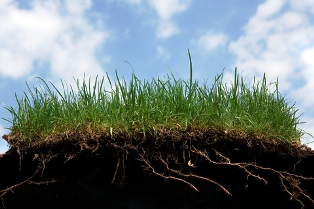Add humic acid to your soil for brillant flowers and robust yields
Humic acid (humus), known by farmers and gardeners for years, is necessary for consistent plant health and soil quality. Humus is really quite a complex mixture of organic substances formed from the the decomposition of plant and animal parts by microorganisms, under aerobic (oxygen present) and anaerobic (no oxygen) conditions, in non-desert soils.

This acid, a major component of humus, is commercially separated and is used as a soil conditioner. The acid improves a plants ability to absorb certain minerals by increasing the number and permeability of root systems. Additionally, this acid promotes bacterial growth allowing these bacteria to chelate (carry) nuturients easily through the root system.
Adding this acid:
- Makes soil friable - breaks up hardpan
- Increases water retention and reduces soil erosion
- Speeds up organic material decomposition
- Allows air to enter soil deeply
- Increases number of chelating micobes which chelate (carry) beneficial nuturients to plants and chelates toxins to other microbes for breakdown to harmless substances
- Improves overall plant and soil health increasing yields
- Decreases fertilizer applications
Return from Humic Acid to How Do Plants Grow
|




